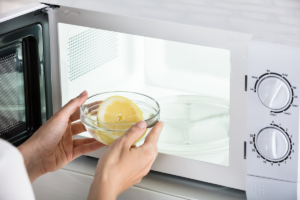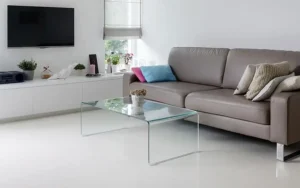Before you live in a glass house, you should ask yourself: are glass houses safe? After all, anyone can see inside and you may be at risk of being hurt if someone throws a stone.
But then again, living in a glass house has its perks. For one, you’re always surrounded by natural light. And secondly, people can see how fabulous your life is and be envious!
So, the question remains: are glass houses safe? You’ll just
What are glass houses?
A glass house is a type of building that is constructed mostly or entirely from glass. Glass houses are usually built for the purpose of protection from the elements, such as wind, rain, and snow. However, they can also be built for aesthetic reasons or to provide a view of the surrounding area.
The history of glass houses
Glass houses have been a part of human history for centuries. The first known glass house was built in Rome in 79 AD. It was a small structure, only about 9 feet by 9 feet, and was used as a conservatory for plants. The oldest surviving glass house is the explosure at the Royal Pavilion in Brighton, England, which was built in 1787.
It wasn’t until the early 1800s that glass houses began to be used for more than just plants. In 1817, an Englishman named Joseph Paxton built a massive glass house that was over 500 feet long and 200 feet wide. It was big enough to walk through, and it had a system of pipes that carried water to different parts of the structure. Paxton’s glass house was so successful that he went on to build many more, including the Crystal Palace, which was used for the Great Exhibition of 1851.
Today, glass houses are still being used for exhibitions and gardens, but they’re also being used as homes. Thanks to advances in technology, it’s now possible to live in a glass house that is warm in the winter and cool in the summer.
The benefits of glass houses
A glass house is a structure made almost entirely out of glass. These buildings are used for a variety of purposes, including greenhouses, solariums, sunrooms, and atriums. Glass houses offer many benefits over traditional structures, including increased natural light, temperature regulation, and energy efficiency.
One of the major benefits of glass houses is the increased amount of natural light that they provide. Glass is a transparent material that allows sunlight to pass through it easily. This means that glass houses can be filled with light, even on cloudy days. The extra light can be beneficial for plants, as it helps them to grow more quickly. It can also be helpful for people who suffer from seasonal affective disorder (SAD), as the extra light can help to boost their mood.
Another benefit of glass houses is that they can help to regulate the temperature inside.Glass is a good insulator, meaning that it helps to keep heat in and cold out. This can be beneficial in both hot and cold climates. In hot climates, glass houses can help to keep the inside cool, as the heat from the sun is not able to pass through the glass easily. In cold climates, glass houses can help to keep the inside warm, as the heat from the sun is able to pass through the glass and heat up the inside of the house.
Glass houses are also more energy efficient than traditional homes. This is because they do not require as much energy to heat or cool them. Glass houses often have solar panels installed on them, which means that they can use renewable energy to power themselves. This makes them much better for the environment than traditional homes that rely on fossil fuels for their energy needs.
The drawbacks of glass houses
Glass houses have several advantages, such as improved insulation and the ability to let in more light. However, there are also some potential drawbacks to be aware of before you build or buy a glass house.
One of the main drawbacks of glass houses is that they can be very expensive to heat and cool. Because glass is such an excellent conductor of heat, it can be difficult to keep a glass house at a comfortable temperature during extreme weather conditions. In addition, glass houses are also more susceptible to damage from high winds and hail than traditional houses.
Another potential downside of glass houses is that they may not provide as much privacy as you would like. If you are concerned about privacy, you may want to consider using frosted or tinted glass for your windows or using blinds or curtains.
Despite these potential drawbacks, glass houses can be beautiful and enjoyable places to live. If you are considering building or buying a glass house, be sure to weigh the pros and cons carefully before making your final decision.
Are glass houses safe?
Glass houses are not typically considered safe structures. They are more prone to damage from severe weather and natural disasters than other types of homes, and they can pose a safety risk to occupants in the event of a breakage.
How to make glass houses safe
Most people think that glass houses are not safe, but if you take the right precautions, they can be. Here are some tips on how to make your glass house safe:
-Install shatter-resistant film on all glass surfaces. This will help to prevent glass from breaking and causing injuries.
-Make sure that all windows and doors are properly sealed and caulked. This will help to keep out draf ts and pests.
-Install window guards or grilles on all windows. This will help to prevent accidents and injuries.
-Install a security system with cameras and an alarm. This will deter burglars and other intruders.
-Keep all flamma ble materials away from the glass house. This includes candles, lighters, and matches.
Tips for living in a glass house
Living in a glass house has its pros and cons. On the one hand, you get lots of natural light and stunning views. On the other hand, you have to be careful about privacy and security. If you’re thinking about living in a glass house, here are a few things to keep in mind.
Privacy is one of the biggest concerns when it comes to glass houses. If you’re not careful, your neighbours will be able to see right into your home. Curtains and blinds can help, but you might also want to consider using frosted or privacy glass. This will allow you to enjoy the benefits of natural light without sacrificing your privacy.
Security is another important consideration when living in a glass house. Because glass is fragile, it’s important to make sure that your windows and doors are well-protected. burglar-proof window film can help deter would-be thieves, and security alarms can also give you peace of mind.
Another thing to keep in mind is that glass houses can get very hot during the summer months. If you live in an area with long hot summers, you might want to consider installing air conditioning or using reflective window film to keep your home cooler.
Living in a glass house can be a wonderful experience, but it’s important to be aware of the challenges that come with it. By taking measures to protect your privacy and security, you can enjoy all the benefits that glass homes have to offer.
Conclusion
Are glass houses safe? That depends on how you define “safe.” If you’re worried about burglars breaking in, then a glass house is no more or less safe than any other type of house. If you’re worried about severe weather, then a glass house may not be the best choice.












